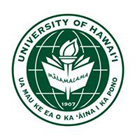- اخبار و مقالات
- Find usIDP AustraliaIDP BahrainIDP BangladeshIDP CambodiaIDP CanadaIDP ChinaIDP EgyptIDP GhanaIDP Hong KongIDP IndiaIDP IndonesiaIDP IranIDP JordanIDP KenyaIDP KoreaIDP KuwaitIDP LebanonIDP MalaysiaIDP MauritiusIDP Middle EastIDP NepalIDP New ZealandIDP NigeriaIDP OmanIDP PakistanIDP PhilippinesIDP Saudi ArabiaIDP SingaporeIDP Sri LankaIDP Taiwan, ChinaIDP ThailandIDP TurkeyIDP UAEIDP VietnamIDP Corporate
- Social
- فارسی
- Where we operate
- Courses
- Scholarships
- IELTS
- About IDP
- Student Essentials
- اخبار و مقالات
- Find us
- Find us
- Find nearest IDP offices
- IDP Australia
- IDP Bahrain
- IDP Bangladesh
- IDP Cambodia
- IDP Canada
- IDP China
- IDP Egypt
- IDP Ghana
- IDP Hong Kong
- IDP India
- IDP Indonesia
- IDP Iran
- IDP Jordan
- IDP Kenya
- IDP Korea
- IDP Kuwait
- IDP Lebanon
- IDP Malaysia
- IDP Mauritius
- IDP Middle East
- IDP Nepal
- IDP New Zealand
- IDP Nigeria
- IDP Oman
- IDP Pakistan
- IDP Philippines
- IDP Saudi Arabia
- IDP Singapore
- IDP Sri Lanka
- IDP Taiwan, China
- IDP Thailand
- IDP Turkey
- IDP UAE
- IDP Vietnam
- IDP Corporate
- Social
- LANGUAGE_SWITCHER
- آموزش IDP /
- کالج ها و دانشگاه ها /
- United States /
- University Of Hawaii - Manoa /
- Bachelors of Science in Mol...


Location
United States
صلاحیت
Bachelor Degree
شهریه ها
USD33336
(2025)
مدت زمان
8 Semester(s)
پذیرش بعدی
22 August 2025
امتیاز ورود
7.0
آیلتسCOURSE_INFO
MBB graduates have excellent job prospects upon graduation. Graduates are amply prepared to enter graduate studies in the biological, environmental, medical, and agricultural sciences and are profession-ready for job opportunities in industry (biomedical, health-care diagnostics, pharmaceutical, forensics, agricultural, environmental, and biotechnological) and in governmental research. Students who plan to enter medical, dental, or related professional schools are advised to confer with their faculty adviser to enroll in the proper MBB electives for these programs. With additional courses in education, the BS degree in MBB also qualifies graduates to teach at the elementary, middle, and high school levels.
The MBBE faculty have a commitment to and passion for teaching, combined with renowned research expertise in their chosen disciplines. The faculty provide independent research experiences for undergraduate students (as MBBE 499), and many have well-funded research programs utilizing state-of-the art equipment and techniques. On-campus research facilities that students can use to enhance their education and research experience include the Biological Electron Microscope Facility, the Greenwood Molecular Biology Facility, and the Center for Advanced Studies in Genomics, Proteomics and Bioinformatics.
- کمک هزینه تحصیلی
- دوره های کارآموزی
نیازمندی های ورود به University Of Hawaii - Manoa
All official transcripts, examination certifications (e.g., General Certificate of Education) and other documents showing all high school and any completed post-secondary work must be submitted to the Office of Admissions. All official transcripts must be mailed directly by the institution or Ministry of Education to the Office of Admissions. Documents mailed or hand carried by you or anyone else will not be accepted as official or used for admission consideration.
Secondary school transcripts must include a list of courses taken and grades/internal marks received each year, class rank for the last four years of secondary school, and an explanation of the school's grading system. If transcripts with annual internal marks are unavailable directly from the school, you may photocopy your mark sheets or grade reports and have them certified by a school official who verifies that a transcript is otherwise not available.
IELTS (Academic Test) - 7.0
TOEFL (iBT)- 100
TOEFL (PBT)- 600
ددلاین اپلیکیشن
تاریخ ددلاین مشخص نیست با یک مشاور IDP صحبت کنید برای اطلاعات بیشتر
Further information
If you aren't eligible for the above entry requirements, you might ant to explore pathway options at University Of Hawaii - Manoa. If you want to find out more, speak to our counsellors.
رتبه جهانی
251st / 1250
رتبه جهانیدانش اموزان ما چگونه فکر می کنند؟
هنوز نظری در مورد این موسسه دریافت نکرده ایم
پیشنهادات برای شما
- کارشناسی
- United States
- نوع کمک هزینه تحصیلی: Fee waiver/discount
Your action plan
گام 1
Shortlist your courses
Choose the best three courses you’re most likely to pursue.
گام 2
Check your eligibility
Get an instant in-principle offer for courses with the IDP FastLane tag.
گام 3
Apply through IDP Live
Fill out the form once and use it to apply to multiple courses.
اپلیکیشن فست لین IDP چگونه کار می کند؟
با "پذیرش مشروط" FastLane ظرف چند دقیقه می توانید در مورد پذیرفته شدن تان در دانشگاه با خبر شوید
یک موسسه یا دوره را انتخاب کنید
یک پروفایل آکادمیک ایجاد کنید
درخواست خود را برای "پیشنهاد مشروط" ارسال کنید
موسسه(ها) مورد نظر تان ظرف مدت چند دقیقه تصمیم خود را به شما اعلام خواهد کرد
برای درخواست پذیرش با کمک یک مشاور آماده شوید




